

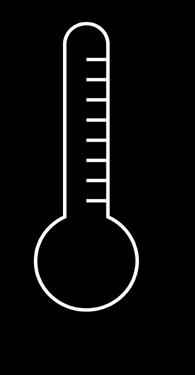
WEATHER

27 - Oct. 2 Forecasted by Michael Pardee, a













27 - Oct. 2 Forecasted by Michael Pardee, a








Raleigh is welcoming two new additions to its growing literary scene as two publishing groups begin their operations in the City of Oaks this year. Their arrival is expected to bring new opportunities for local authors and contribute to the evolving literary landscape in our state’s capital.
These two groups, Serving House Books and Broken Tribe Press, both have come under the ownership of William Lawrence, a lecturer for the Department of English at NC State.
The first of these groups, Serving House Books, was passed on to Lawrence from its founders after they both retired.
Lawrence mentioned the opportunity brings to newer, younger writers and older, more experienced writers alike as a perk of the additions.
“[Giving] new writers an opportunity to get them a start, but also at the same time, to reignite older authors who have been kind of neglected and left behind by their big presses,” Lawrence said. “[The previous publishers] brought those older books back to life and even gave [their authors] a new opportunity to publish new books.”
This international publishing group is deemed a literary press, meaning they engage with a high standard of literature and often republish award-winning books for second editions after they have been neglected by larger publishing groups.
Lawrence is currently working on publishing a smaller set of books in December of this year with Serving House Books but plans to publish a much larger volume of books in the coming year.
The other publishing group under the supervision of Lawrence, Broken Tribe Press, aims to bring a voice to alternative and ex-

perimental writers.
“Broken Tribe is a little bit edgier and more experimental,” Lawrence said. “[There are] so many writers out there. … I call them literary wanderers.”
Sally Parlier, a lecturer for the Department of English and a fiction reviewer for Broken Tribe Press, spoke more to the experimental and edgy style of the publishing group.
“The goal of Broken Tribe Press is to find voices in literature that aren’t necessarily in the mainstream,” Parlier said. “We try to frame our mindset in a way that this is beyond conventional thinking about genre.”
Broken Tribe Press also has future plans that appeal to North Carolina, Raleigh and even NC State.
Lawrence detailed what he deemed “The American Series,” a long-term project that
NC State’s weekly log of major incidents across campus.
LARCENY SUSPICIOUS INCIDENT
Sept 16, 2024 at 9:57 p.m.
Fountain Dining Hall
An employee reported cash was taken from their unattended wallet.
Sept. 16, 2024 at 8:22 p.m. Carmichael Gym
A student was referred to the University after leaving her children unattended in the gym while she worked out on multiple occasions.
will highlight authors from across the United States, including North Carolina. Each year, a group of states will be featured in a submission-based contest in which the winners will be published.
Lawrence also mentions Broken Tribe Press’ interaction with North Carolina in the coming year in a new journal published that highlights authors associated with the publishing group.
“The second volume next year will really be only North [Carolinians,]” Lawrence said. “A good number of them [from] Raleigh and probably a good number of them from NC State.”
Broken Tribe Press also caters to individuals who have recently graduated from a Master of Fine Arts program, through it’s MFA Award Project. Lawrence spoke of his experience with the struggles recent MFA
graduates face.
“I see a lot of people graduate from MFA programs and they just kind of seem like they wander off,” Lawrence said. “[The project is] something that publishes somebody and gives them an opportunity.”
As a fiction reviewer for the contests that Broken Tribe Press holds, Parlier explained how the group brings opportunities for inclusion in the publishing world.
“We want to encourage unheard voices,” Parlier said. “When I’m going into a bookstore, what titles am I not seeing that I want to see?”
With both Serving House Books and Broken Tribe Press moving to Raleigh, residents are sure to see an impact on the growing literary scene in North Carolina, both on campus and state-wide.
LARCENY OF VEHICLE SEX OFFENSE
Sept. 16, 2024 at 5:23 p.m. Partners Way Deck
A student reported their vehicle stolen. It was determined the student forgot where they parked.
Sept. 16, 2024 at 4:51 p.m. Public Safety Center
A female student reported a sexual offense.
Myles Jackson Correspondent
With ever-increasing class admissions year after year, the Wellness and Recreation Center has increased equipment as part of their strategic planning to combat record-high attendance. However, they have marked a noticeable increase in gym attendees on the first day of school — a 700 person difference.
Carmichael Gym had a total of 71,127 users during the first week of fall semester, marking a 6.38% increase from the previous academic year. The first day of school, as mentioned previously, had 10,795 gymgoers attending compared to 10,172 in 2023. Emmanuel Akogyeram, assistant director of facility operations at WellRec, explained the additional equipment was a decision based on the center’s platform, Occuspace. The software platform provides a live count of how busy each floor of the gym is by Occuspace sensors placed on the main levels. Student employees also physically count users through iPads to further verify, the data is then updated on the facility’s website or app.
“The data is telling us in terms of not just how many people are in each space, but the way our spaces are being utilized,” Akogyeram said. “One of the things we’ve continued to try and do is either add more equipment or change equipment out. That’s all part of our continuous effort to make sure that we’re meeting the needs of our users.”
The facility has added 16 functional fitness machines on the second floor, 14 are upper body-oriented and five are leg fo -

the rock climbing wall at Carmichael Gymnasium on Wednesday, Sept. 18, 2024. The climbing center has a maximum capacity of 60 people and is often crowded in the evening.
cused. An additional five machines were also added to the third floor. More equipment and improved machines will appear on the gym floor in the future, although it is a hard process as the facility itself will not increase in size.
To respond to the spaces getting busy, a fitness courtesy was added as part of the gym’s guidelines. Users should implement working in sets, even if they don’t know one another, as this will alleviate wait times at machines.
“I’ll definitely suggest to a new NC State student who is just getting familiarized with our space to definitely request that,” Ako-
gyeram said. “Then maybe you all will get talking to somebody and maybe a workout in itself is just enhanced.”
Finding time to workout is hard and varies for each person. Monday is the busiest day according to the data collected from Occuspace, and attendance steadily drops throughout the week, especially during the weekend.
Nina Magee, a third-year studying business administration, described her navigation of the crowd.
“I usually get up at 5:30 a.m. and I get here at six,” Magee said. “You can also park before 7 a.m., so I’m able to get in a one hour
lift and then leave at seven.”
For new users contemplating the gym, the experience is less daunting than expected.
“It’s true that you might be judged, you might be looked at, but honestly, no one’s going to remember you the next day,” Magee said. “So at the end of the day, everybody’s too worried about themselves and how they look and how much they’re lifting or what they’re doing, to really care about someone else and even if they do for a short moment, they’re never going to remember.”
Regularly attending contributes to finding a favorite exercise activity and supports building healthy habits as a college student. Setting a consistent sleep schedule, having a healthy balance with technology, staying ahead of deadlines and reviewing goals are also ways to strive for a healthy academic year.
“Mental health has been a huge awareness around the last couple semesters, and I have a first hand account and experience in how impactful any kind of engagement is,” Akogyeram said. “But there are several ways on NC State’s campus that you can be engaged and involved in, which will help with your overall well being.”
Other ways of completing a workout include attending a F45 fitness class, joining an intramural sports team, working out outside at the FitGround beside Miller Field and utilizing private studios on the third floor that follow a first come, first serve basis. There are many ways to get involved and are found on WellRec’s website, including the live visitor count, which is also found on their app.
Autumn Walser Staff Writer
Fantasy football, a game where you get to act as the owner and coach of your own NFL team, has become a cultural phenomenon. Most notably, the loser’s punishments have. Fantasy football works by allowing the player to draft real NFL players onto their team. Players join a league — typically with their friends — and their teams compete against each other to win the most points. Teams win or lose points through individual players’ real-life performance in the NFL and different maneuvers equate to a certain amount of points. For example, a touchdown would count for six points, a lost fumble typically counts for negative two points and 10 rushing yards typically count for one point.
At the end of the season, the loser of the league is determined and they typically suffer through a predetermined punishment. Will Farmer, a fourth-year studying forest management, lost in his fantasy league last year and had to complete the 3-6-9 challenge. This meant he ran nine miles, drank six beers and ate three hot dogs.
“You have to pick between running miles, drinking cans of beer and eating hot dogs and assign it to your choosing of 3-6-9,” Farmer said. “You have a three hour timeline to do everything. Just to spite my roommates, I was like, ‘I think I could actually run the nine miles’.”
Farmer said some of the other punishments he heard of included wearing acrylic nails until they came off, as well as the Waffle House challenge. This is when the loser has to spend 24 hours in a Waffle House, but every waffle they
eat takes an hour off their time.
Juan Salazar, a fourth-year studying nutrition, said the goal of the punishments is to provide entertainment for the other members of the league.
“One of [our punishments] is you have to build a 500 piece puzzle in the closet with just a headlamp,” Salazar said. “Last year it was the beer mile and we got to watch the guy do it. That was pretty funny.”
The beer mile, if you’re unfamiliar, is when the loser has to run a mile on a track and shotgun a beer every lap.
Salazar said he has seen punishments where the loser has to retake the SAT and get a certain score, post a TikTok trend for 30 days or stay in a dog crate while having food and objects thrown at them.
“You go in a dog crate and everyone just brings whatever
Internships, teams, Greek life, clubs and more play an integral part in college life and post-graduate plans. There’s abundant information available about how to get involved, but figuring out how to pick up the pieces after trying and not succeeding is often left undiscussed.
Rejection is unsettling and hurtful, but it is an unavoidable part of life. Rejection is completely normal, but the shameful culture surrounding it often pushes people to hide their feelings and quickly move on for fear of embarrassment or seeming overly sensitive.
It’s easy to feel lost and disoriented when navigating rejection in any facet of life. Abbey Berkebile, a coordinator with the Academic Success Center, emphasized the role that post-graduate plans play in heightening the urgency to find a job, internship or join an organization.
“What you want to do after college is a big place where a lot of pressure stems from,” Berkebile said. “Especially when you know that you’re competing with other people.”
Stress surrounding involvement can also arise from the fear of missing out. With only a few years of college and so many groups and activities all in one place, it’s easy to find yourself spread too thin while trying to make the most of every moment.
“The fear of missing out and wanting to
maximize your experience in college can also lead to the pressure of ‘I have to do everything, because when else am I going to have these opportunities?’” Berkebile said.
These factors intensify the stakes of any application, audition or campaign and can make rejection feel like a cascading domino effect that crumbles into all aspects of a student’s personal and collegiate life.
Managing stress and unreasonable expectations doesn’t come easily, it’s often a process that needs to be continuously worked on.
“Practice self reflection,” Berkebile said. “Recognize when you have taken on too much and figure out either how to back off or if there’s an end in sight or be able to reach that end.”
Hiding from the uncomfortable feelings that rejection brings is often instinctual. When dealing with anger, fear, frustration and disappointment, the choice to pretend you’re unbothered sometimes feels like the only way to make it through. However, that option often ends up hindering your ability to process the events, learn from them and take the next step forward.
“Allowing yourself to feel that disappointment at first doesn’t mean you have thin skin,” Berkebile said. “And from there figure out, ‘Okay, what is the next step?’”
When not dealt with, the fear of rejection often begins to inhibit goals, especially those that require a degree of social risk. At
they want and they throw it at you,” Salazar said. “Could be like, jelly, peanut butter, mayonnaise, horseradish, rotten milk and all that jazz.”
Salazar said the worst punishment he’s seen was a social media post.
“I opened Instagram and I saw this guy doing a TikTok dance in his underwear on his Instagram and the caption was a hashtag ‘I suck at fantasy,’” Salazar said. “I was like, ‘Oh, my God.’ He was really wearing no clothes except, like, those ballerina skirts.”
Kevin Clarke, a third-year studying biomedical engineering, said one of his past league punishments was a spin-off of the beer-mile.
“So we had the milk-mile where we gave them a gallon of milk and we filled up a cup each time they ran a lap,” Clarke said. “He finished a gallon by the end of the mile. By lap two, buddy was hurting.”
Salazar said the appeal of fantasy football is partially for the social aspect.
“Before I played fantasy, I had people saying ‘Oh, you want to do this fantasy league?’” Salazar said. “Being outside of it, you feel like an outsider. But then when you’re in it, there’s so many people playing. So for example an easy conversation starter is like, ‘Oh, my fantasy …,’ then other people are like, ‘Oh yeah, my fantasy ….’ And if you’re not playing, it’s easy to feel left out.”
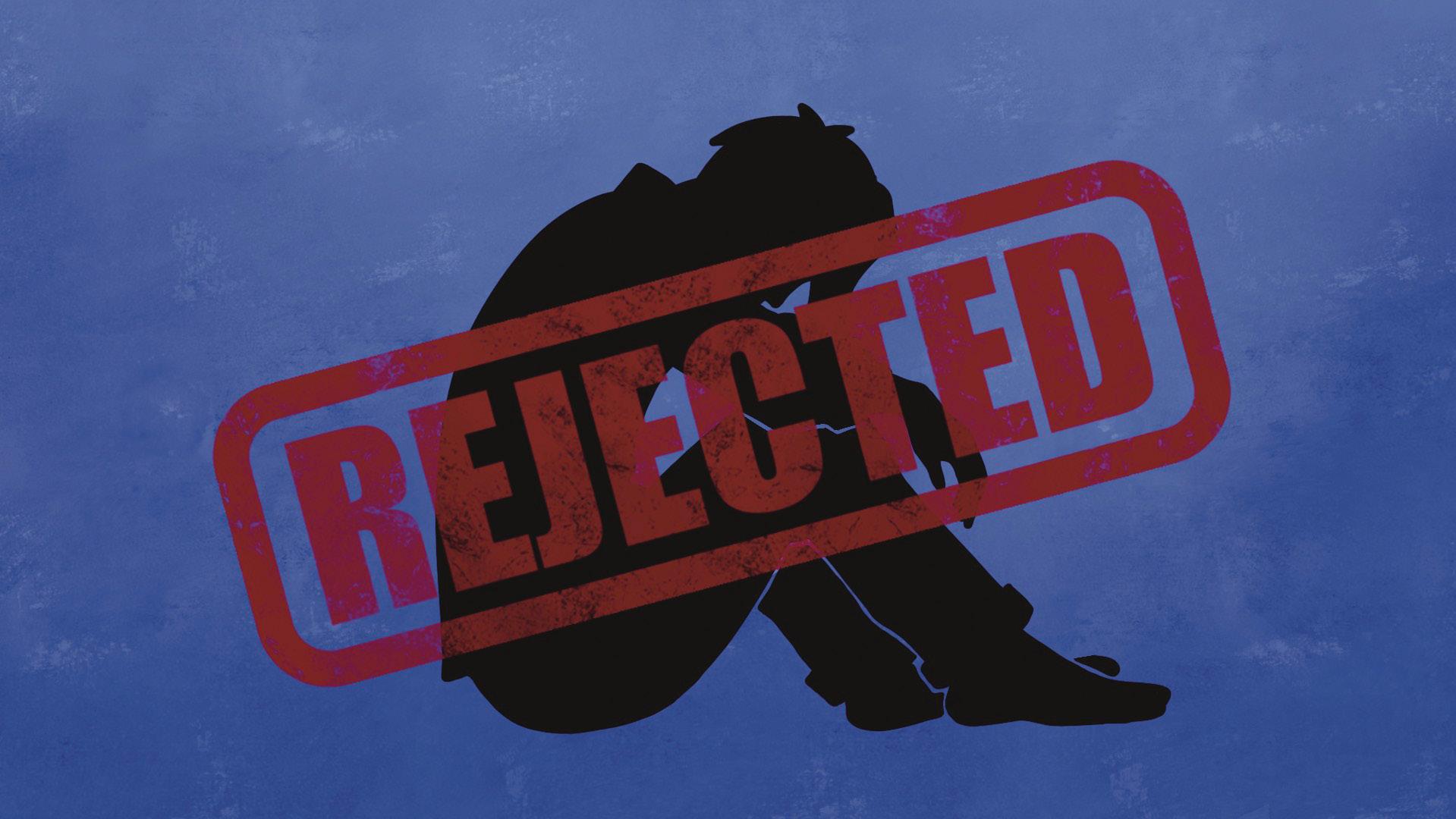
a large university, it can be overwhelming trying to connect with others and requires confidence in the face of uncertainty.
Montana Ramakrishnan, a second-year studying psychology and the outreach secretary for the NC State Student Film Society, noted that it takes time and practice to find the courage to get involved.
“It’s hard to put yourself out there,” Ramakrishnan said. “The first time I went to film club, we had a big group discussion and I knew no one there. It was hard to get all my words out.”
If you’re feeling nervous about the social aspect of getting involved, it’s important to remember that student organizations revolve around finding community.
“A club isn’t its own separate social group, it’s something where everyone can participate equally,” Ramakrishnan said. “So don’t be afraid to get yourself out there.”
Trying to recover from past rejection, or even just the possibility of it, will never be a simple task. It takes drive and determination. The choice to pursue a goal is always admirable. It should be committed to and not regretted, regardless of the outcome. In the thick of rejection, self-reflect and process, but don’t linger. Remind yourself that rejection isn’t a step backward, it stimulates growth and self-discovery.
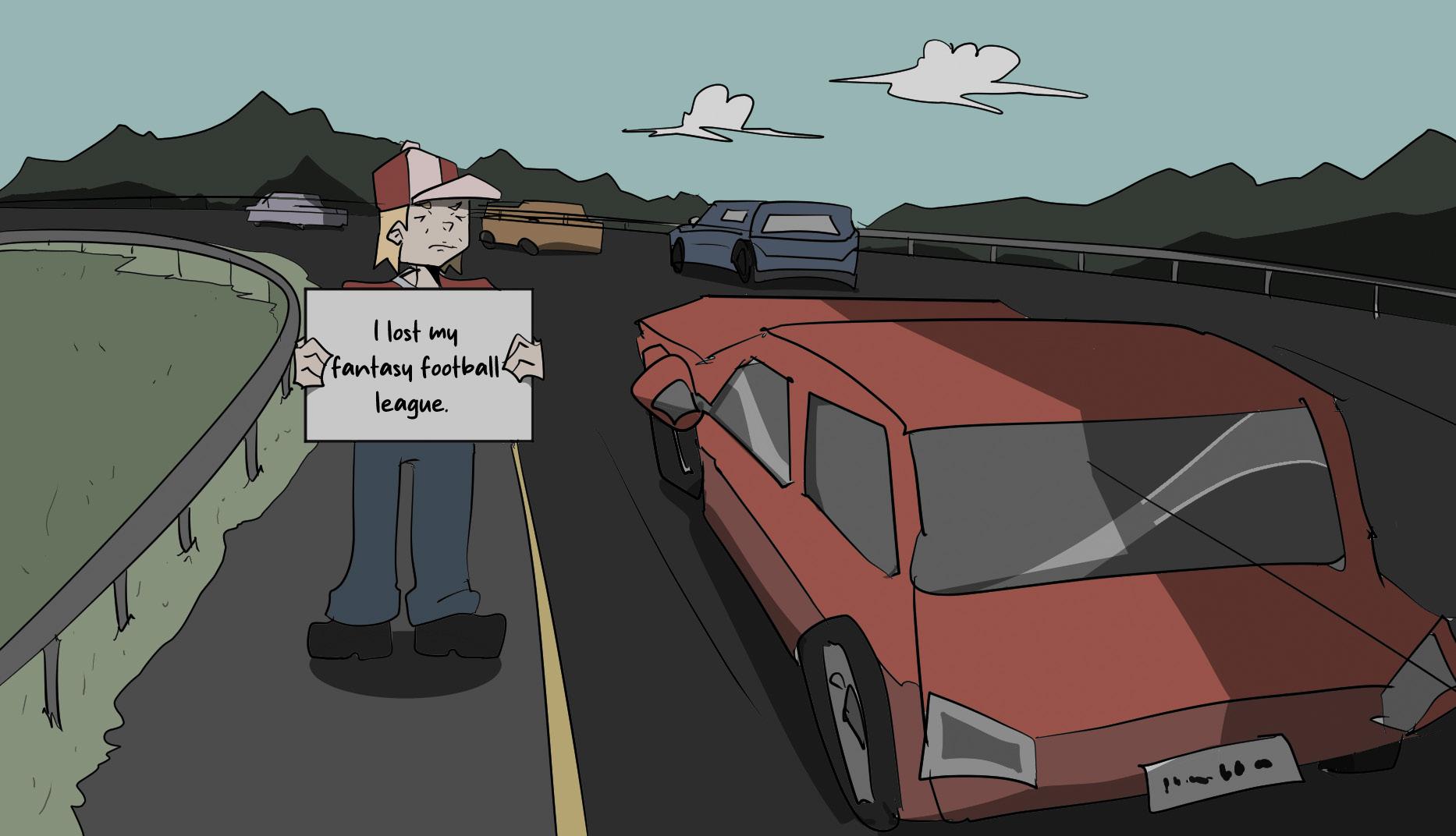
Piper Vance Correspondent
Editor’s Note: This article contains reference to sexual assault and domestic violence.
NC State offers numerous resources across campus for survivors of sexual assault, aiming to provide students with pathways to healing that best suit their individual needs.
The Women’s Center at NC State serves as the first point of contact for survivors of sexual violence. The center provides a variety of survivor services and works to connect students with the services best fit for them.
Delana Epps-Avery, associate director of the Women’s Center and Interpersonal Violence Services, said one of the department’s main focuses is to offer support and advocacy to survivors.
“Our job is really to support the survivor through this emotional and traumatic event, by connecting them with all the resources on campus that are available to them,” Epps-Avery said. “But also giving them a safe place to land, a place where they can come and be able to express all those things in a safe environment.”
The Center provides advocates, who are trained to offer support and information to aid in the healing process. Advocates are available on weekdays in the Women’s Center offices and can accompany survivors to court, medical services, student conduct hearings and meetings with campus police.
Working closely with other departments, the Women’s Center helps students obtain academic accommodations to ensure their success. Epps-Avery said advocates work with the Office of Equal Opportunity to assist students in communicating with professors and departments in seeking accommodations.
The Women’s Center operates a sexual assault helpline that is available 24/7. The line serves as a dedicated crisis line for students conducted by advocates at the Women’s Center and can be reached at (919) 5154444.
“We are available 24/7 to students who have experienced any level of interpersonal violence or harassment on our campus,” Epps-Avery said.
Students can reach an advocate at the Women’s Center by calling the helpline or reaching out to the email advocate@ncsu. edu.
The NC State Police Department provides support whether or not students choose to pursue a criminal investigation.
Lieutenant Conner Hartis, of the internal affairs office of the Department, said their goal is to provide extensive resources so survivors can make informed decisions on their approach.
“Our focus here at the police department is to give the survivor, or someone who’s connected, as much resources as possible so that they can make the best-informed decision,” Hartis said.
Regarding criminal investigations for instances of sexual assault, the department uses a trauma-informed approach to limit
additional trauma. After an initial conversation with a responding officer, an on-call investigator takes over the interview. This process limits the amount of retelling between a survivor and different members of NC State Police.
Investigators also utilize this approach in interviews, recognizing the traumatizing nature of these events.
“It’s okay not to remember things,” Hartis said. “It’s okay days, weeks, months later to recall other events or details that you didn’t initially know.”
Campus police employ a multidisciplinary approach to their investigations, connecting students with representatives from the Women’s Center, Office of Student Contact and the Counseling Center. Campus Police can reach out to the Women’s Center and arrange for an advocate to be present during an interview. Investigators can also make mental health referrals through the CARES program.
Prevention services offered by campus police include escort services, self-defense training and blue light emergency phones. Training programs include Rape Aggression Defense and pepper spray training. Hartis said these trainings provide students with options when facing a violent individual.
“We walk individuals through, if you have an aggressor, what is a legal and safe way to navigate that,” Hartis said.
Students can reach campus police at (919) 515-3000.
Prevention Services - CARES
NC State’s Prevention Services offers the CARES program, providing mental health
and behavioral services to students who either opt into the program or are referred to it anonymously by other students. Students can meet with a case worker for referrals to appropriate resources.
The Office of Student Conduct offers legal protections to survivors of sexual violence. Here, students can request legal accommodations such as no-contact orders, housing reassignment and schedule changes.
If you or someone you know is experiencing relationship violence, sexual violence, stalking or any other form of interpersonal violence and are in need of advocacy services, the NC State Women’s Center has trained advocates available to offer crisis intervention, emotional support, resources and referrals. Students can contact the 24/7 Sexual Assault Helpline at 919-5154444 or email ncsuadvocate@ncsu. edu to schedule an appointment with an advocate.
Support services through the NC State Women’s Center are available for all students inclusive of all gender identities and sexual orientations.
For more information on support services, please visit go.ncsu.edu/supportsurvivors. If you would like to talk to a confidential resource, you can also connect with the NC State Counseling Center at 919-515-2423. You may also visit https://equalopportunity.ncsu. edu/safe/ for additional information on resources and reporting options.

Ally Tennant News Editor
Editor’s Note: This article contains reference to sexual assault and interpersonal violence.
The red zone is a national phenomenon in which universities experience a spike in reported sexual assault cases between the beginning of the school year to Thanksgiving break. The Movement, a student-led organization based out of NC State’s Women’s Center, is raising awareness about the red zone in which college students are particularly vulnerable to sexual assault.
Kylin Adams, assistant director for interpersonal violence prevention education and training at the Women’s Center, said more than 50% of sexual assault cases on college campuses occur between August and November. Adams said a common reason for the increase in sexual assault cases on campus can be due to the unfamiliarity of a new area for new students.
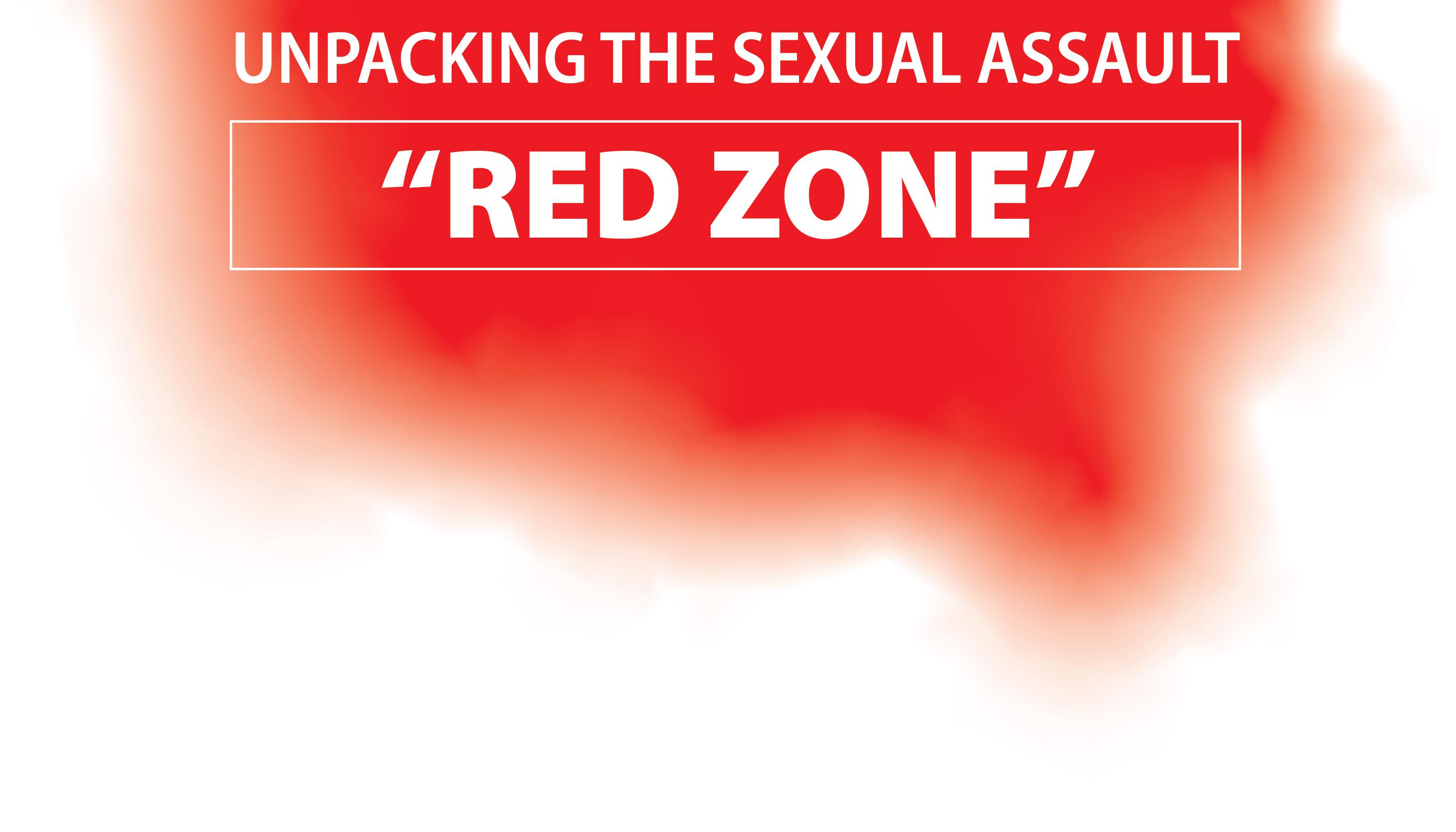
campus, the number is probably lower than what actually has happened,” Abernathy said. “A lot of survivors don’t come forward, or they don’t report it in any official manner.”
Laura Roman-Rantz, a fourth-year studying English and director of administration for The Movement, said the local community of college campuses can impact the narrative of the red zone.
niza-
tion possible when it comes to resources but can be complicated when getting other organizations involved.
“It’s just a time where people are kind of navigating campus,” Adams said. “New students are still building those support networks on campus, and don’t know the resources quite as well, or are still building, commuting, figuring out where to go. That makes them a little bit more vulnerable, so perhaps experiencing interpersonal violence.”
The national student-led organization PAVE, or Promoting Awareness and Victim Empowerment, reports that nearly one in every 30 female first-year students will experience sexual violence before their first midterm exam. Over 40% of men and 70% of non-binary students also experience sexual assault during the red zone.
Jordan Abernathy, a third-year studying anthropology and director of communications for The Movement, said although statistics are important, relying on them firsthand can lead to bias.
“While statistics do exist on
“I think it’s really important to acknowledge that a lot of harassment is cultivated by the local culture and the local community, and in that regard, the way that we think about certain things,” Roman-Rantz said. “So when we have language, for instance, that is specifically created to target women, such as ‘slut’ or ‘whore,’ then it cultivates this idea that women are sexualized or subjected to that sort of treatment and that it is okay to refer to them in those contexts, but in reality, women have their own agency.”
Danica Plihcik, a third-year studying anthropology and director of outreach for The Movement, said there should be a safe places at NC State for conversations surrounding sexual assault that foster welcoming communities.
Although conversations are needed to stop the stigma, Abernathy said victim blaming can play a part in the process.
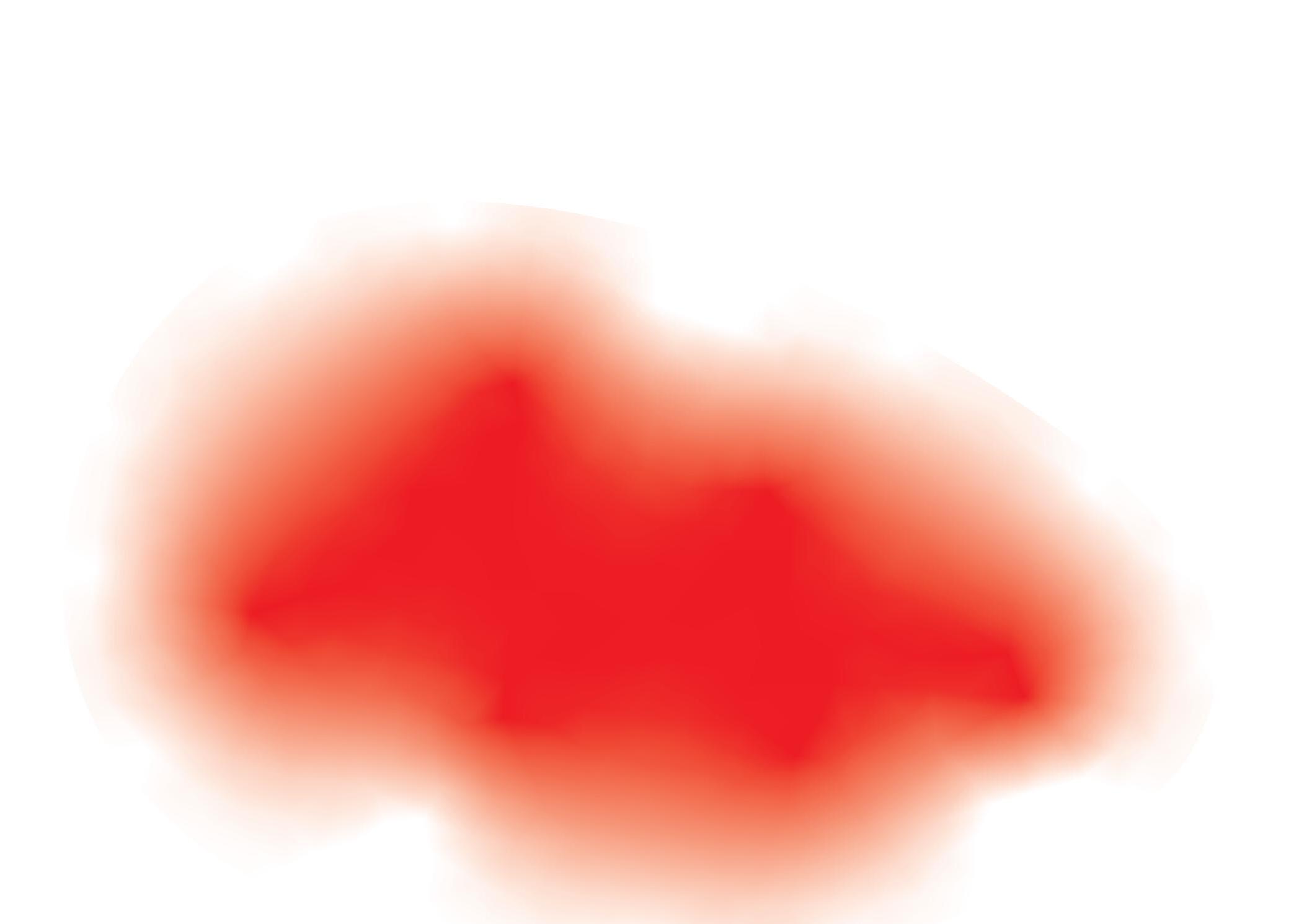
“It’s really important that we’re not blaming victims,” Abernathy said. “Especially, I think parents, even out of concern, can be like, ‘This is a scary time. Don’t go out, don’t go to parties,’ but if you’re not going out or you’re not going to parties, you’re not making connections. You’re not building support systems, and that can even lead to an even bigger thing.”
Abernathy said it’s important for students to educate themselves because everyone is connected to the red zone.
“Even if you don’t think you’re connected to it in a way, you are,” Abernathy said. “You’re either part of a system who’s allowing it to happen, or somebody in your life, unknowingly, has been a victim or a perpetrator of [interpersonal violence], so it’s important to educate yourself. And don’t be like, ‘Oh, this doesn’t apply to me.’ It 100% applies to you, because it’s a community issue.”
Adams said a major goal for The Movement is to reach every student and orga-
“So oftentimes, athletes or Greek life are those target communities that we often work to build connections with,” Adams said. “But those are also communities that oftentimes are inundated with training constantly, and there’s a very large number of students who maybe aren’t as highly involved in various organizations or maybe are working and so they’re not in these spaces where they’re constantly being trained on things that get completely missed with our training.”
Plihcik said The Movement and the Women’s Center are available to all genders needing resources and encourages students to reach out for help.
The Movement offers several expressive workshops, educational presentations and weekly meetings to educate students about interpersonal violence on campus and offer support for survivors. More information can be found on its website.
If you or someone you know is experiencing relationship violence, sexual violence, stalking or any other form of interpersonal violence and are in need of advocacy services, the NC State Women’s Center has trained advocates available to offer crisis intervention, emotional support, resources and referrals.
Students can contact the 24/7 Sexual Assault Helpline at 919-515-4444 or email ncsuadvocate@ncsu.edu to schedule an appointment with an advocate.
Advocacy services through the NC State Women’s Center are available for all students inclusive of all gender identities and sexual orientations.
For more information on advocacy services, please visit go.ncsu.edu/supportsurvivors
If you would like to talk to a confidential resource, you can also connect with the NC State Counseling Center at 919-515-2423
You may also visit go.ncsu.edu/safe for additional information on resources and reporting options.


Myles Jackson Correspondent
Editor’s Note: This article contains reference to sexual assault.
NC State’s Office of Fraternity and Sorority Life is implementing new initiatives designed to address and prevent sexual assaults on and outside campus.
The Encouraging Positive Intervention in Chapters, or EPIC, program educates Greek organizations on alcohol and drug use, brave and bold dialogue and sexual violence prevention. According to the FSL website, the program “will build capacity of chapter leaders and their members to engage with these complex topics and how they take responsibility to address them.”
Shelly Brown Dobek, director of Fraternity and Sorority Life, said this means that FSL needs to take a comprehensive approach to preventing sexual assaults on campus.
“We need to think about initiatives that support either the understanding of the eradication, of the mitigating, of the educa-
David Elrod, associate vice provost for the Office of Equal Opportunity, chose a sexual violence prevention core course that all firstyear students are assigned to. Dobek chose one that builds on sexual violence prevention and focuses on foundational knowledge, understanding consent and upstander strategy.
“What we call an upstander strategy, the idea that I am my brother’s keeper or my sister’s keeper, so not that I’m responsible for his or her behavior, but how do I learn to recognize when things are inappropriate and how do I learn to interrupt that behavior to make sure either that I’m keeping my sister safe or that I’m interrupting my brother if he’s making a risky choice?” Dobek said.
While the “It Matters” modules were delayed initially, they were released three weeks ago with a test sample sent out beforehand. Next year, the modules will be distributed earlier so members can complete them before new member activities begin.
With 3,600 members in FSL, groups of 40 attend in-person workshops annually. Each year, a different topic is rotated to ensure comprehensive coverage of EPIC programs. New members are prioritized for these workshops due to their unfamiliarity
sometimes with external organizations like the Raleigh Women’s Center. These partnerships offer curriculum that addresses areas such as survivor support, further understanding of consent and fostering healthy relationships.
Dobek said the trainings are designed to give students a choice in their education on sexual assault prevention.
“It lets the chapter not feel kind of mandated or required to go through training, but a little bit of, ‘How do I make this fit what we’re experiencing in real time?’ and hopefully increasing the buy-in for their participation so that they’re increasing how much they’re willing to absorb that information versus kind of being held prisoner by it,” Dobek said.
Every year, chapter presidents participate in educational sessions about sexual violence prevention during a retreat for Greek leaders or the monthly chapter presidents meeting.
Amanda Campos, president of the Panhellenic Association and a fourth-year student studying political science, said some sororities partner with the Raleigh Women’s Center and participate in Take Back the Night.
“You’ll find that a lot of chapters, like my
nity,” Campos said.
Accountability within FSL is addressed through various channels such as the Office of Student Conduct, Title IX regulations, University Police and City of Raleigh Police. The process beyond that depends on whether survivors choose to pursue any action.
FSL chapters also practice self-governance by holding members accountable for their actions. Dobek said she recounted an incident where a fraternity member was expelled after a reported assault.
“And I can think of an incident a couple of years ago where there was a Wolf Alert that went out saying that there was a sexual assault that had occurred in a fraternity house,” Dobek said. “It was a resident of the fraternity, and they chose to terminate his membership and asked him to move out of the fraternity house.”
Dobek said victim blaming is not supported by FSL.
“So I want to say this — no one ever deserves, no matter what choices they’ve made to be victimized or to be assaulted,” Dobek said. “There are strategies that can increase our safety, but that doesn’t mean we turn around and say, ‘If someone didn’t do that,

nity and is taking measures to reduce assaults on campus. Students seeking resources can visit the Women’s Center in Talley Student vors can reach advocates by calling the 24/7 or
Rocky Berhe Assistant Opinion Editor
Editor’s Note: This article contains references to drugs and sexual violence.
Don’t take your eyes off your drink. If you do, get a new one. You know the warnings about attending parties and social events in college. Fun and games can quickly turn into life-altering situations when alcohol is involved.
You’ve likely heard of the term roofie before. It is a nickname for Rohypnol, a central nervous system depressant often present in sexual assault crimes. The drug has no flavor or odor and is typically administered without the victim’s knowledge via spiking. Spiking or lacing a drink describes the occurrence where an individual’s drink is nonconsensually contaminated with a substance.
A study from the University of South Carolina reported that 22% of respondents said they had been nonconsensually drugged while attending the university. 70% of respondents knew someone who had their drink spiked, and a staggering 18% of respondents knew four or more people who had their drinks spiked.
Rohypnol and GHB — another drug commonly used to spike drinks — are only detectable for 10-60 hours after ingestion. Most sexual assault crimes are not reported, let alone reported within three days of the incident, so there is very little data on these substances, especially as it relates to their presence in drug-facilitated sexual assault. In a survey conducted by American Addiction Centers, 52% of men and 62% of women did not report the person responsible for spiking their drink.
Roofies are dangerous for many reasons, but due to their overlap in situations where alcohol is involved, symptoms of a roofie can be easily misconstrued for severe intoxication. In both cases, medical attention should be sought out. The survey from American Addiction Centers found that only 15% of respondents intervened and aided them to safety. There’s no point in risking your life or the life of a friend because you “aren’t sure if it’s actually that bad.” If you are questioning whether you or your friends are safe, decidedly, you all are not.
Rohypnol side effects begin to present themselves 15-20 minutes after ingestion. If your drink has been roofied, it might taste a bit salty or appear cloudier than when it was first poured. If you weren’t consuming a carbonated drink, look out for any bubbles. Extreme drowsiness is also an overarching symptom when
someone has been roofied. Once again, this can be confused with intoxication, so it’s important to avoid binge drinking, especially in an unfamiliar environment.
I want to emphasize that though there is absolutely no excuse for lacing someone’s drink, there are ways to protect yourself and your friends from the harms associated with participating in nightlife while in college.
According to the survey from the University of South Carolina, 60% of students reported they had been drugged while going out in their nightlife district, Five Points. 67% reported they knew someone who had been drugged in Five Points. These numbers are staggering, considering these instances are taking place in businesses subject to Alcohol Enforcement laws. What’s to say of the private property where a considerable amount of partying in college occurs?
Last spring, there was a report of a woman and her friend who found themselves in critical condition after a night on Glenwood Avenue. The EMTs had to use narcan to revive the two girls. The girls suspect they were drugged using fentanyl. Wake Forest police responded to the scene but did not follow-up with a report since the incident took place in Raleigh.
One thing is certain regardless of location — roofies are a considerable threat to the safety of students in a major transition period of life. The various stressors placed on students, especially freshman establishing themselves in a new environment, unfortunately can lead to reckless behavior, drinking included.
If you decide to engage in nightlife on campus or elsewhere, know the symptoms to watch out for, and keep a close eye on your friends.
In a study conducted by the University of South Carolina:
22%

44%
70%
of respondents knew someone who had their drink spiked.
In a survey conducted by the American Addiction Center: of respondents said they had been nonconsenually drugged while attending the university. of men had their food or drink spiked. of women had their food or drink spiked.
18%
of respondents knew four or more people who had their drinks spiked.

56%

Editor’s Note: This article contains reference to sexual assault. The author of this guest column, Riley Bennett, opted to use the name as a pseudonym to protect their identity.
I’ve been told that I act differently since I’ve decompartmentalized my sexual assault.
Some were textbook rapes when I was a minor; those I barely knew or knew too well forcing me to do acts against my will while I verbally and physically protested, some repeatedly. Others were more subtle methods of coercion as I became an adult.
I rarely hear about stealthing, which I experienced frequently. The practice involves consent given as a condition of a physical bar-
rier, usually a condom. Against one partner’s knowledge, during intimacy, this barrier is removed.
While I had consented to engage in intimacy, I did not consent to the risk of pregnancy. I did not consent to the risk of STI. A condom would be very likely to protect me from both, and the partner had clearly communicated prior acceptance of this condition. What made them think otherwise was okay?
In another instance, I remember a college classmate getting extremely angry that I refused intimacy with him. When I responded that I felt pressured, he grabbed me by the shoulders and insisted he would never make me do anything I didn’t want to. Despite his words, it became clear by his grip that he had the ability to force me — my physical vulnerability was obvious. Being alone with a man was unsafe.
In every case of sexual assault, I was unable to prioritize my physical and mental wellbeing because the first thought on my mind was whether I needed to consider an abortion or would develop a disease that might kill me. Neither matter I can discuss with my loved ones, as sex is taboo.
I also rarely hear about how often you risk seeing people who assaulted you. I’m not talking about fear of repeated patterns in future partners. You see them physically: classes, clubs, work, bars, the gym. Things you once did or enjoyed now pose a risk to you.
Commonalities that first brought you together keep them crossing your path unless you sacrifice parts of yourself. Most people experience sexual assault by someone they know. Part of the trauma is losing those safe spaces or safe people.
This can drive you to isolation, even from
your friends. Mutuals who know your assailant may be reluctant to admit their friend is capable of these actions or try to excuse their behavior.
Additionally, assailants you know have your social media contact and phone number. I’ve experienced months of newly created accounts trying to contact me.
It also causes seemingly insignificant actions to become memorable. I was out with a friend when one of the male hosts showed me the kitchen where the water glasses were so I could fill them myself. He knew an offer for water could have been a chance for them to drug us.
So yeah, I don’t go out much now. I don’t have social media. I don’t party anymore. I’m sober. I don’t trust others easily. I act differently, but it’s the only way to stay safe moving forward. I won’t risk being hurt again.
Rocky Berhe Assistant Opinion Editor
Editor’s Note: This article contains reference to sexual misconduct.
When an individual decides to report their assailant, the process that follows can be challenging, even dangerous, for the victim. It is a courageous act, one that will hopefully mean the assailant won’t be able to repeat their crimes. Due process of law is disputed and convoluted. Out of every 1,000 sexual assault perpetrators, only 25 will be incarcerated.
On campus, these cases are handled by the office of student conduct. REG 04.25.02 of the Equal Opportunity and Nondiscrimination Policy outlines the procedural regulations in handling Title IX violations. These regulations fall under the Code of Student Conduct and the jurisdiction of the Office of Equal Opportunity.
Section 4.2 of REG 04.25.08 states that “This regulation applies when (1) NC State has Actual Knowledge of Title IX Sexual Harassment; (2) the Title IX Sexual Harassment occurred within NC State’s Education Programs or Activities; and (3) the Title IX Sexual Harassment is against a person in the United States.”
An individual who has had their Title IX rights vio -
lated may file a complaint with the Office of Equal Opportunity or an Equal Opportunity and Equity investigator. Anonymous reports may be submitted. However, NC State says “[their] ability to respond or take further action from an anonymous report may be impacted by the level of information available about the incident or the individuals involved.”
The regulations for resolving Title IX complaints are similar to measures taken by police. Respondents are permitted legal representation and face the same “innocent until proven guilty” status as any person accused of a crime in this country.
The standard for guilt is even lower than that of a criminal trial. The conduct board only requires a preponderance of evidence rather than beyond reasonable doubt.
Unlike criminal proceedings, however, the accused is not automatically removed from their peers during the resolution process. Section 5.7 of REG 04.25.02 states that “in appropriate circumstances, NC State may place an employee on administrative leave with pay — or may place a student on interim suspension during the Complaint Resolution Process.”
There is a measure prohibiting questions about the complainants’ prior sexual behavior. However, respondents are given the opportunity to submit questions to be asked during investigative hearings.
An informal process resulting in an informed voluntary agreement between the Parties and NC State to resolve a Complaint utilizing strategies such as educational interventions or other restorative principles to address the concern, prevent its recurrence, and/or restore the community.
- Discrimination, Harrassment and Retaliation Complaint Procedures, REG 4.25.02
is not a monolith — it’s time we stop talking about it as such

Editor’s Note: This article contains reference to sexual assault.
When I was 13, I was coerced into sexual acts that I had no desire to participate in, and the shame I felt for years afterwards was a product of self-guilt. What I didn’t know at the time was that I was a victim, and that not fighting back did not mean that I was not sexually assaulted.
The phrase “sexual assault” is often viewed as synonymous with rape, and the word “rape” is often viewed as synonymous with a brutal attack by the perpetrator or violent struggle by the victim. Consequently, how society frames the discussion of sexual assault when it is not violent is extremely problematic.
Fortunately, scholarship and general societal discourse has redefined consent in recent years, calling for enthusiastic consent every time sexual activity occurs.
We have moved away from believing the absence of a “no” is the presence of a “yes,” and we have moved away from the misconception that physiological responses to sexual stimulation — such as lubrication, an erection, audible reactions and even orgasm — are indicators of consent. And
In this instance, respondents are permitted to call upon the complainants’ sexuality so long as “they are offered to prove that someone other than the Respondent committed the alleged conduct or they concern specific incidents of the Complainant’s prior sexual behavior with respect to the Respondent and are offered to prove consent.”
This policy is concerning, as respondents may take advantage and use this opportunity to exploit personal details of the individual accusing them. Not to mention it directly contradicts Section 2.4 of the same regulation which states “prior consensual conduct between the Parties does not itself demonstrate or imply consent to current or future acts.”
Regarding the removal of persons accused of Title IX violation, serious dis -
yet, misconceptions surrounding whether or not an event constitutes sexual assault are still prevalent.
Of the women who have reported rape or attempted rape in their lifetime — which is one in five women in the U.S. — one in three of these women have experienced it for the first time between ages 11 to 17. Given that so many women have been victimized at such a young age, it only makes sense that additional young women and girls were subject to similar forms of violence yet were unable to label it as such.
Men are disproportionately absent from the conversation of sexual violence altogether, creating an even more dangerous network of rhetoric surrounding what constitutes assault.
Men 18 to 24 who are in college are five times more likely than non-students of the same age to be sexually assaulted. Additionally, one in 10 men are victims of sexual assault. Although women and girls are statistically at higher risk for sexual assault than men, these statistics generate a discourse that discourages men from acknowledging their sexual assault for what it is.
Another reason individuals might struggle to categorize their experience as assault pertains to whether or not they believe it will be upheld in a court of law. Whether or not it is a conscious thought, if victims feel their offender would not be able to be
ciplinary action can be avoided through means of a facilitated resolution. Section 7.2 of REG 04.25.02 defines a facilitated resolution as “an informal process resulting in an informed voluntary agreement between the Parties and NC State to resolve a Complaint utilizing strategies such as educational interventions or other restorative principles to address the concern, prevent its recurrence, and/ or restore the community.”
“The facilitated resolution process allows the parties an opportunity to resolve the issue and is intended to be educational in nature.”
In the case of a facilitated resolution, the complainant is obviously aware of the outcome, and in cases resulting in a complete investigation process, complainants are still notified of the decision to discipline or absolve the respondent.
prosecuted by our justice system, if they do not feel that they were a victim to a genuine crime, they may not view themselves as a victim at all.
This is an especially troublesome way of viewing sexual assault given that only 25 out of 1,000 perpetrators of sexual violence will face prison.
With such a small portion of assailants facing criminal sentences, society runs the risk of constructing an even more worrisome cycle — one in which the definition of sexual assault grows ever more constricted and victims are incapable of claiming sexual autonomy.
Let me be clear — I am not calling for a mass arrest of people accused of sexual misconduct. I am, however, stating that the success of arrests or criminal prosecutions is not an indicator of the victim’s validity.
It is imperative that we, as a society, begin to recognize the many covert ways that sexual violence makes its way into the lives of young adults and college students in particular due to the long-term repercussions of sexual assault.
For example, according to the Rape, Abuse & Incest National Network, 38% of sexual violence victims face work or school-related problems, and 70% experience moderate to severe levels of distress after the incident. Additionally, people who have been sexually assaulted are 10 times
Other students, however, are not given any knowledge of the outcome when it is determined that an individual did indeed commit an act that violates Title IX. Respondents, unless expelled, are free to wander campus as they please.
This is not the case in criminal proceedings. Once an individual has been convicted of a sexual crime, they are put on an offender’s list, greatly reducing their ability to work and live according to their preferences. This practice is controversial, but it undoubtedly keeps members of our community, at the very least, aware of their environment.
In 2023, former NC State football player Joshua Pierre-Louis posted on social media that he had received an offer to return to the team. Pierre-Louis was suspended from the team in 2022 after he was found responsible for two vio -
more likely to use major drugs other than cocaine and marijuana.
These quantitative results do not, however, capture the overall feelings of self-guilt, shame and loneliness that victims of sexual violence harbor.
People from all backgrounds and identities find themselves in unhealthy sexual situations and unequipped with the language and knowledge to call their assault what it is. Many people are coming to recognize that they were assaulted later in life, months or years after the incident. However, we should be talking about sexual violence in a manner that allows people to acknowledge what they have been through when or soon after it happens.
To anyone who has invalidated their own experience of sexual violence, telling themselves that it wasn’t “that bad” or that they “didn’t put up enough of a fight” to prevent a sexual act from occurring, I am here to tell you that you are seen.
If you did not enthusiastically consent to sexual activity, then you did not consent at all.
The line between consensual and nonconsensual sexual activity is not blurry; it’s actually quite clear. If a shadow of a doubt exists in your mind, honor it. Your assault is valid too.
lations of sexual misconduct, although head coach Dave Doeren did not disclose the reason for the suspension and neither did NC State Athletics when asked for comment in 2023.
Despite the outcome of the disciplinary process, the University was allegedly willing to welcome Pierre-Louis back to campus, although he did not ultimately return to NC State.
You may very well be sitting next to a sexual offender in your lecture hall and have no idea. This isn’t intended to fearmonger or create an anti-social fear of your peers, though one may not have to be so paranoid if they could rely on administrators to ensure our campus was perpetrator-free.
Connor VanDerMark Assistant Sports Editor
The job’s not finished.
Six months ago, NC State men’s basketball became one of the greatest Cinderella stories in sports history. Originally projected to lose in the second round of the ACC Tournament, the Wolfpack won five games in five days to punch its ticket to the NCAA Tournament as an 11 seed.
Continuing its hot streak, NC State beat powerhouses such as Marquette and Duke to become South Region champions and make a Final Four appearance. But all good things must come to an end. The Wolfpack fell to Purdue, just one game short of its first National Championship appearance since 1983.
The Pack returned to the City of Oaks being lauded and praised for its postseason effort. However, its hunger for a national championship was and is still stronger than ever.
“I’m proud of the fact that we’ve been [to the NCAA Tournament] back-to-back,” said head coach Kevin Keatts. “But we want an opportunity to go back-to-back-to-back tournaments and a National Championship chance.”
The offseason was one of great joy for Wolfpack Nation as it continued to celebrate its miraculous run. But it came at the cost of losing four of its starters, including DJ Burns, DJ Horne, Casey Morsell and Mohamed Diarra. On the bright side, three of the seven key players from NC State’s tournament run chose to return for another year in hopes of recreating its postseason success.
Senior guard Jayden Taylor was third in points last season, only behind Horne and Burns, while shooting a respectable 36.4% from beyond the arc. As the highest returning scorer, he will be a main facet of this new NC State offense. Not only is Taylor a prolific scorer, he is a strong defender who constantly applies pressure to his opponents. He becomes a veteran presence on the team and a role model for the younger players.
“I have to use my voice a lot more this year,” Taylor said. “Vocally, I’ve been leading the guys and just leading by example.”
After hitting the buzzer-beater that kept NC State’s tournament hopes alive, graduate guard Michael O’Connell returns for his final season, but this time as the team’s presumed starting point guard. Though coming off the bench for 46% of his matchups, O’Connell led the team in assists while playing nearly 300 minutes less than Horne.
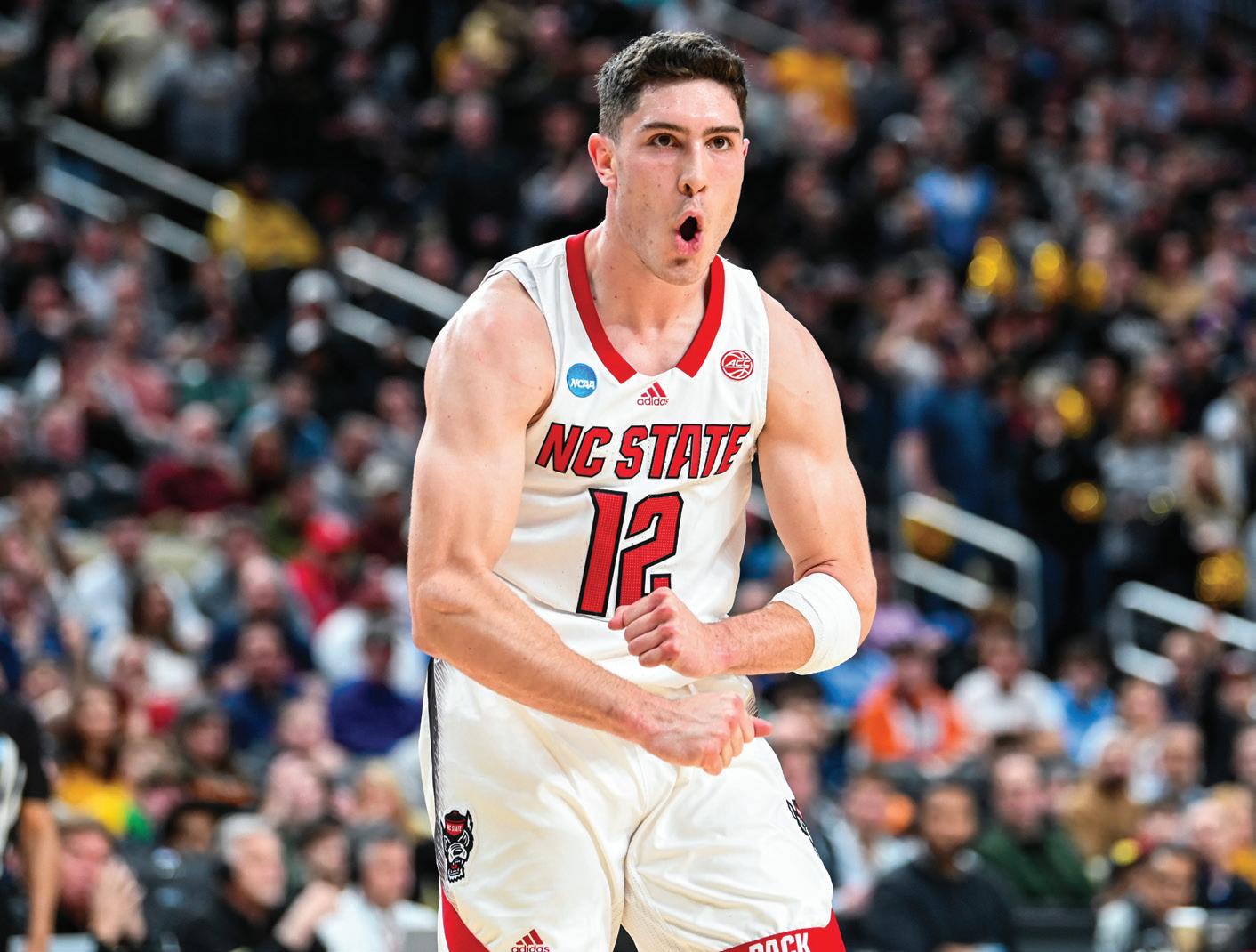
season, the Bowling Green transfer averaged a team-leading 20.5 points per game while shooting 44% from the field. Hill thrived against competition in the Mid-American Conference, but with the sharp increase of talent in Power Four conferences, Hill will have to adapt his playstyle against a more difficult Atlantic Coast Conference.
The final transfer Keatts obtained is junior forward Ismaël Diouf, who hails from Laval College in Quebec, Canada. Last season, Diouf averaged 10.3 points per game while shooting an impressive 56% from the field. Diouf is expected to come off the bench to complement Huntley-Hatfield and Middlebrooks.
To round out the team, the Wolfpack recruited three talented freshmen to grow under the wing of the veteran squad.
Trey Parker is an athletic three-level scorer with an explosive playstyle. The sixfoot-one guard was originally supposed to join the team in 2023 but opted to spend a second season with Overtime Elite. Last season, Parker averaged 12.4 points and nearly two steals per game.
“Playing with Michael, he makes the game so easy,” Taylor said. “He’s a smart point guard. He’s a traditional point guard. Everybody on this team knows that [O’Connell] is going to set the table and put you in a position to score.”
Burns became a favorite of college basketball fans all across the nation. His unique playstyle and footwork in the post is one-ofone, making him a difficult player to replace. To make matters worse, Diarra’s departure leaves a huge hole both defensively and on the boards. Luckily, their former teammate senior forward Ben Middlebrooks is ready to step up to the challenge.
Middlebrooks was a consistent force off the bench last season, providing defense and rebounding when needed. We got a glimpse of his true potential in round one of the NCAA Tournament when he scored a career-high 21 points in just 23 minutes. Middlebrooks becomes the Wolfpack veteran amongst the new big-man corps.
“Obviously huge shoes to fill with Burns and [Diarra] gone,” Middlebrooks said. “But I’m excited. I feel like there are a lot of things I haven’t shown and a lot of things I’ve worked on this summer. I’m really excited to get out there and see how it pays off.”
As he did last year, Keatts heavily used the transfer portal to supplement his team, bringing fresh talent to NC State.
Middlebrooks is joined by senior forward Brandon Huntley-Hatfield, who is anticipated to be the Wolfpack’s biggest threat
in the post. Burns’ biggest downsides were his speed and defense, which caused Keatts to leave his biggest offensive weapon on the bench in times when defense was needed. Last season, Huntley-Hatfield led Louisville in points, blocks and rebounds while shooting an impressive 42.9% from beyond the arc.
“I bring a dominant force, just finishing in the paint and rebounding at a high level,” Huntley-Hatfield said. “Being able to set screens and get my teammates open. On the defensive end, I feel like I’ve gotten better this summer at being a switch defender, being able to switch ball screens, being able to hedge out and being able to guard multiple ball screens at a fast pace and a high level.”
Huntley-Hatfield isn’t the only former Cardinal joining the Wolfpack. Redshirt junior guard Mike James joins Taylor and O’Connell in the backcourt. James was the second-highest scorer at Louisville and his six-foot-five frame allows him to rebound better than the average guard.
Keatts acquired another tall guard in senior Dontrez Styles, who is the perfect candidate to replace Morsell. Similar to Morsell, Styles is a three-and-D player who excels on both ends of the floor. Last season, he was the second-highest scorer at Georgetown while leading the team in blocks, a rare feat for a guard.
One of the most interesting players Keatts brought in is senior guard Marcus Hill. Last
Joining Parker is guard Paul McNeil Jr., who has been committed to the Wolfpack since his sophomore year. McNeil is an elite scorer, averaging over 31 points and nine rebounds per game in his senior season, including a 71-point eruption in January that broke North Carolina’s 74-year-old scoring record.
“We’re back like we never left,” McNeil said. “Me being a scorer, I put the ball in the rim every time. That’s just what I do and that’s what I was born to do. But I’m also an all-around player. I just know I’m going to have that arena rocking.”
The Wolfpack’s 13th and final scholarship went to guard Bryce Heard. The four-star recruit was a late addition to the team after reclassifying up to the Class of 2024. Heard averaged 16.9 points and 6.2 rebounds in his final high school season while leading his school to its first basketball state title.
This team is determined to win and do better than the previous season. Last year’s success created an insatiable hunger to win amongst the team. Above all, NC State men’s basketball is driven by its fans. Raleigh has never been more alive than it was during the postseason. The amount of love and support for Wolfpack athletics poured from every corner of campus.
“NC State is such a great place to be,” Middlebrooks said. “People have such a love for basketball. To be able to play for a place that loves basketball so much, it definitely gives you motivation.”
It’s human nature to observe a storyline and jump to conclusions and that’s no different in sports. Every game and event at NC State produces new narratives that mold the foundation of programs, for better or for worse. Is it too early to reach a verdict, or is it time to panic?
From Dave Doeren’s predicament at the quarterback spot to a chance for an ACC Championship for NC State men’s soccer, here are some of the biggest overreactions for some of the Wolfpack’s teams this week.
“CJ Bailey should be the starting quarterback regardless of Grayson McCall’s injury.”
It may be tough to side with true freshman quarterback CJ Bailey after Saturday’s game at Clemson. Bailey finished with a 51.3 quarterback rating paired with two turnovers, both of which led to Tiger touchdowns.
Then again, it’s also tough to argue for graduate quarterback Grayson McCall through his growing pains of Power 4 football. Neither Bailey nor McCall has truly looked like the quarterback to lead a winning football team, but how much of that falls on them?
There isn’t a running game to lean on, and no receiver outside of sophomore Kevin Concepcion has stood out. Plus, the defense gave up 59 points on Saturday, two weeks after surrendering 51. Both have had to deal with those circumstances with a microscope bearing down on them, so how much blame should be placed on the issue?
McCall was the 15th-ranked ESPN transfer in the 2024 class, with hopes of pairing his electric arm with elite ACC playmakers. The fifth-year senior led the Wolfpack to a late win over Western Carolina but was romped by Tennessee before suffering an undisclosed injury in the first half against Louisiana Tech.
Despite sub-par play from McCall, the trial-by-fire approach burned the Wolfpack in Death Valley, making this decision for the coaching staff all the more difficult.
There’s a term in psychology called “sunkcost fallacy,” which means when someone invests in something, they want to get their money’s worth. When you rent a bad movie and eat stale popcorn, it feels like a waste to turn off the movie that’s already paid for and throw away the popcorn that’s already
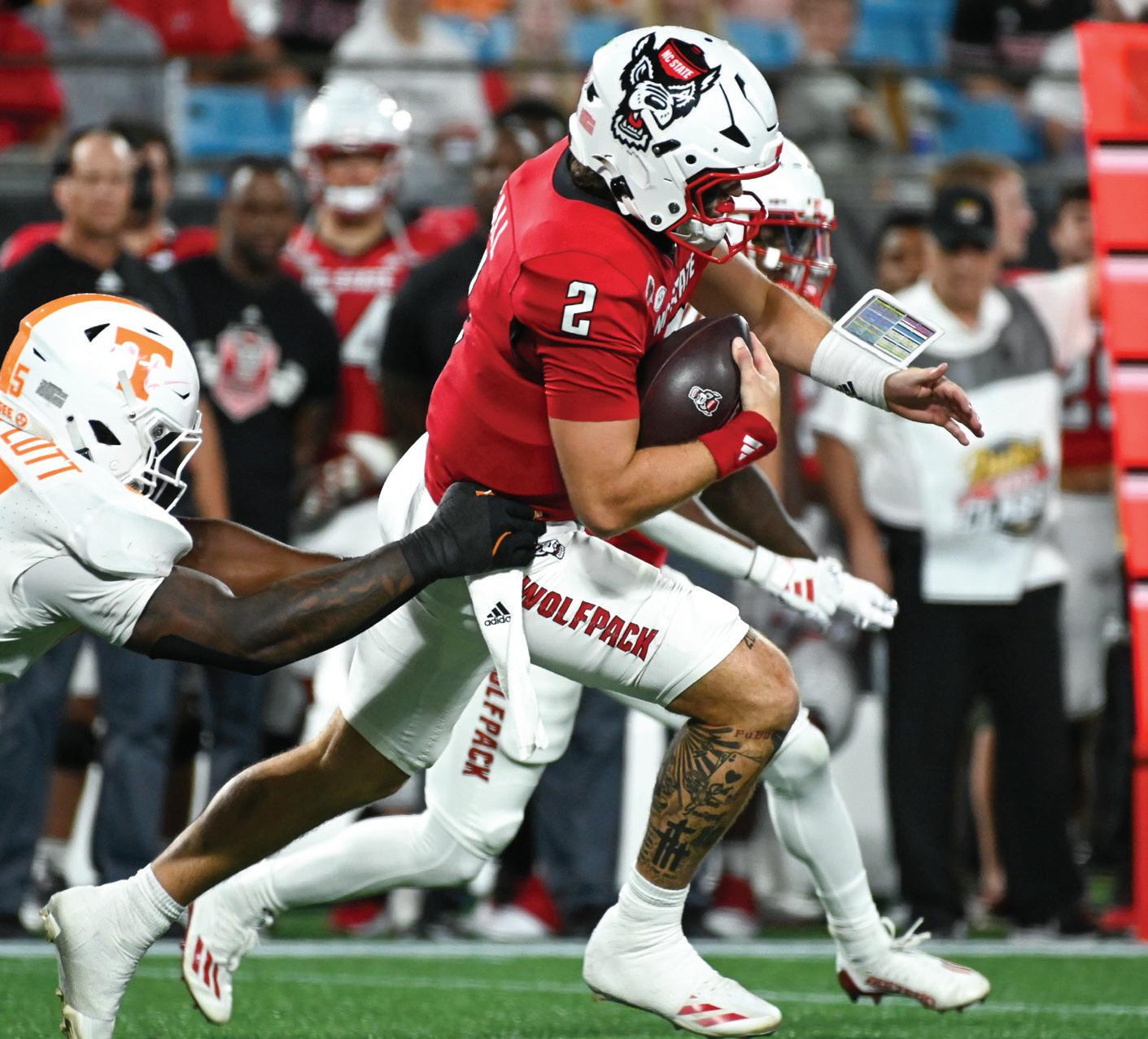
popped. All it leads to is a sad way to spend a weeknight.
Regardless of the team’s investment in the Coastal Carolina transfer, this shouldn’t be overthought. The Wolfpack offense scored 47 points in nine and a half quarters with McCall under center. The Bailey-led attack has scored 45 in less than six quarters.
For those with optimism that Doeren can channel his inner Kevin Keatts and save the Pack’s season, don’t hold out too much hope. What looked like a get-right game against Northern Illinois before the season is no longer a piece of cake, which is the ideal spot to test Bailey.
This may reflect that very optimism, but frankly, the freshman didn’t look all that bad for his first start in what may be the most difficult place to play in the country. Most of the game came down to swing plays and breakdowns that killed momentum, like a rare Concepcion fumble and a pick-6 in the third quarter, but Bailey looked comfortable in the chaos, something no McCall supporter can claim.
Conclusion: Not an overreaction
“Goal production will make or break the NC State women’s soccer’s season.”
In the Wolfpack’s three wins this year, it has scored a combined 12 goals, including four from senior midfielder Annika Wohner. In its seven other games, the team has scored two. Offensive production is at a standstill as the women sit second to last in shots per game in the ACC.
Starting forwards have combined for one goal this year — though sophomore forward Jade Bordeleau scored a hat trick against George Washington. On top of that, Wohner has only taken three shots on goal since her back-to-back braces in August. Finding consistent scoring has been challenging as the team seeks an identity at the halfway point of the regular season.
As the rankings stand, seven of the top 25 teams reside in the ACC, including No. 1 Stanford, who NC State lost to in a 2-0 result on Sunday. Is contending with the elite offenses of the conference the only way to stay in the NCAA tournament race?
Despite what the results may suggest, the Wolfpack has been in control of most games. Against California, it led 1-0 at the 62-minute mark before giving up three goals in 11 minutes. Against William & Mary, the Pack outshot the Tribe 13-6 in a 1-0 loss. NC State also outshot Campbell
23-6 in a 2-1 defeat earlier in the season. A combination of overaggressiveness and a save percentage of just 75.5% has led to higher quality opportunities for oppositions in key moments.
In addition, those 12 goals were against VCU (2-6-1), Charlotte (1-6-3) and George Washington (3-5-2), none of whom have beaten a Power 4 school. Blowouts against inferior opponents inflate the disparity in scoring while the ACC is a different animal. Scoring goals is crucial to the success the women seek in conference play, but won’t necessarily be the pivot point.
Conclusion: Overreaction
“An ACC Championship and beyond is in the cards for men’s soccer.”
After going unbeaten through its first seven games, the Wolfpack suffered its first defeat at the hands of unbeaten No. 6 UNCChapel Hill in its second ACC match of the year. Despite the loss, NC State remains one of the hottest teams in the country.
Just one year removed from a six-win season, the Wolfpack has already matched its conference win total and is one victory off its overall win total from last year. As the men continue to climb the standings and prove this is more than an average year, it begs the question of national contention.
In eight games, the Pack has outscored its opponents 20 to seven and outshot them 122 to 83 on the way to a No. 18 national ranking.
Contrary to the women, the men have stood out against both lesser and quality teams, both in the eye test and box score. NC State sits firmly in the top five scoring offenses per game nationally, as well as in the top 20 in goal differential.
Being tested by Carolina may prove beneficial for a conference championship race down the stretch of the season with elite teams lining the newly expanded conference. Four of the country’s top 10 teams call the ACC home, including three of the top four.
The true test will come in the next three games when NC State hosts Duke, travels to No. 2 Stanford and heads to No. 17 Virginia Tech in consecutive games.
Conclusion: Not an overreaction
Aidan Carlson Assistant Sports Editor
“There’s really nothing you can say,” said NC State football head coach Dave Doeren. “They outplayed us, and they outcoached us. It just wasn’t good enough.”
Recency bias may lead you to believe that is what Doeren said following last week’s 59-35 loss to now-No. 17 Clemson, however, that was his response to last year’s 24-3 loss at Duke. Here’s what he actually said following NC State football’s blunderous loss at Clemson:
“Clemson outplayed us, and obviously that means they outcoached us today,” Doeren said.
Ok, I lied, again. That was Doeren’s response to the Wolfpack’s 30-20 loss at Clemson in 2022 — the last time NC State traveled to Death Valley.
You’re starting to see the pattern, right?
“Not much to say when you’re outplayed and outcoached like we were,” Doeren said.
That’s what the 12th-year head coach really said following NC State’s second embarrassing loss on national television of the 2024 season. “Outplayed” and “outcoached” are becoming an all-too-familiar motto for Doeren and one Wolfpack fans would certainly like to hear less.
It’s difficult to tell which motto he prefers, “outplayed” and “outcoached” or his coined phrase for the program, “Hard. Tough. Together.” which recently has turned into hard to watch, tough to stomach and I guess the together part is still accurate.
It’s starting to become an annual tradition of Doeren’s tenure that the Wolfpack get blown out by an ACC opponent by 20-plus points. Here’s what he had to say following a 45-24 loss to Virginia Tech in 2020.
“They outplayed us,” Doeren said. “They outcoached us. We’ve got a lot to learn from this film, and we’ve got a lot of work to do. We didn’t expect it.”
Every year it’s the same ‘this is our year’ rhetoric and as the talent of the teams continues to increase, the results remain unchanged. Doeren is in his 12th year as head coach and still has not managed to amass a 10-win season.
NC State is known as a program that develops NFL-caliber talent yet for all the players who are developed here



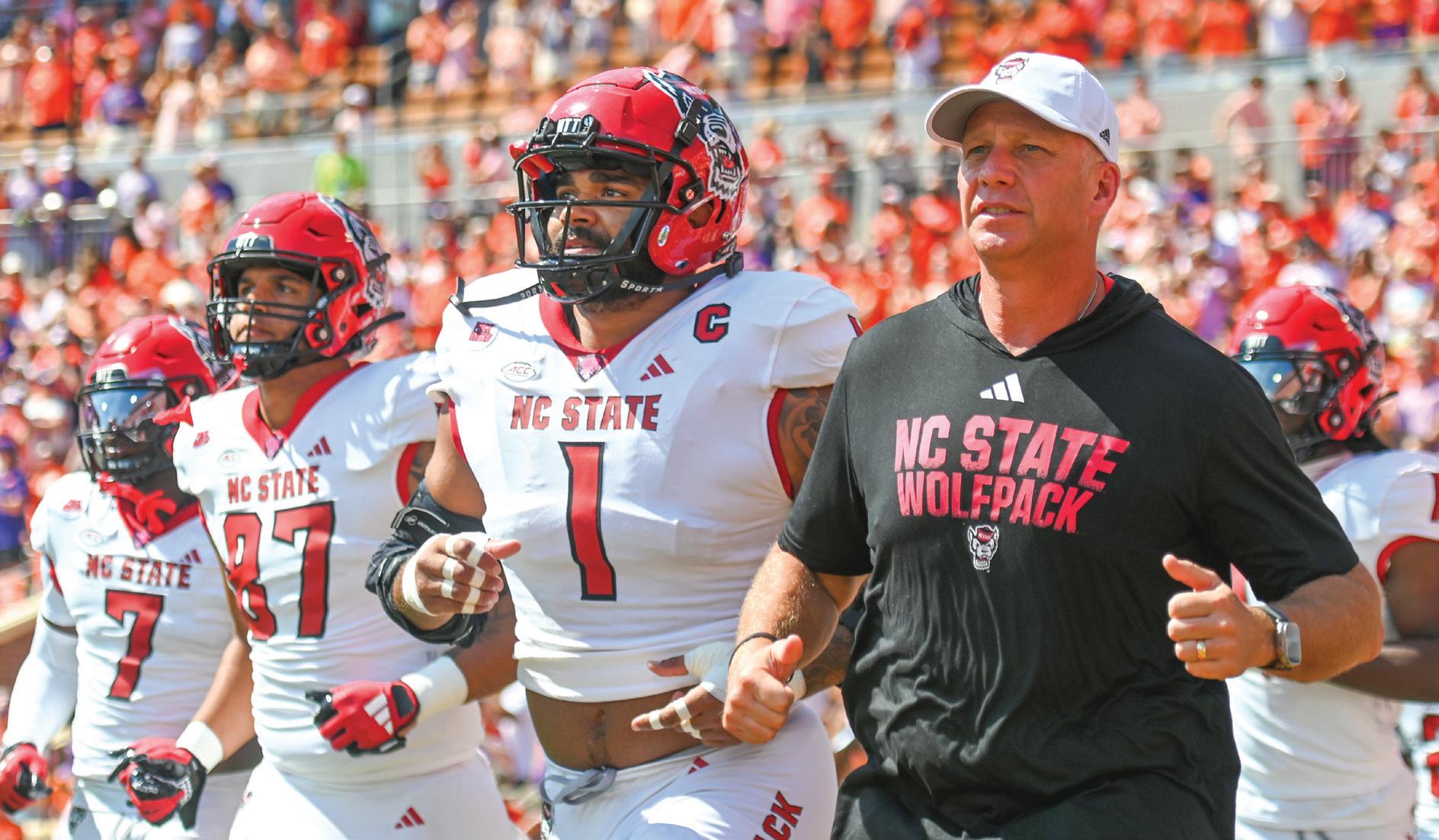
and go on to the next level, the results are underwhelming.
“I think he gets outcoached,” said an anonymous ACC coach in 2019, per The Athletic. “When we beat them, they had better players than we did.”
If the skill is there and the wins aren’t, it falls on one group — the coaches.
Is it all on Doeren? No. But as the head coach, a lot of the responsibility does, and he knows that just as well as anybody.
“They outplayed us,” Doeren said about a 24-10 loss to Mississippi State in 2021. “I thought we were going to play much better than we did. I’m not blaming it on them. It’s a team loss. It starts with the head coach, me, all the time.”
When opportunities present themselves for big wins, Doeren and the Pack are “outplayed” and “outcoached” time and time again.



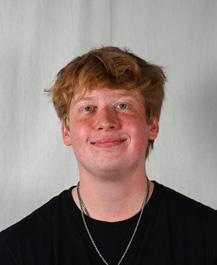
Holding a 10-point lead in the fourth quarter against No. 11 Miami in 2020, the Wolfpack gave up 13 straight points to lose 44-41.
“I think they just outplayed us [in the fourth quarter],” Doeren said. “You’ve got to give them credit.”
In 2018, with a chance to finish the season with 10 wins and a bowl game on the line, Doeren and the Pack gave up 31 unanswered points in the second half to No. 20 Texas A&M. “You’ve got to give them credit in the second half,” Doeren said. “They outplayed us.”
Boasting a 7-27 record against ranked opponents and a 1-6 record against SEC teams, in the biggest games Doeren has been “outplayed” and “outcoached.” After every game, it’s the same script, and people are getting tired.
And if you think the Doeren criticism is too harsh, at the end of the day, they’re his words, not mine.
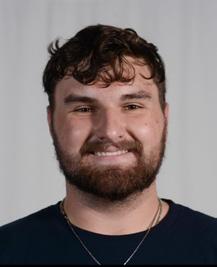
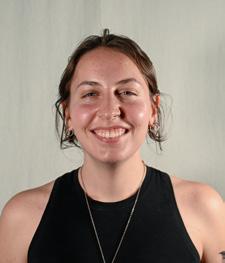

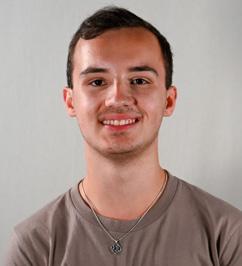

















See page 9
